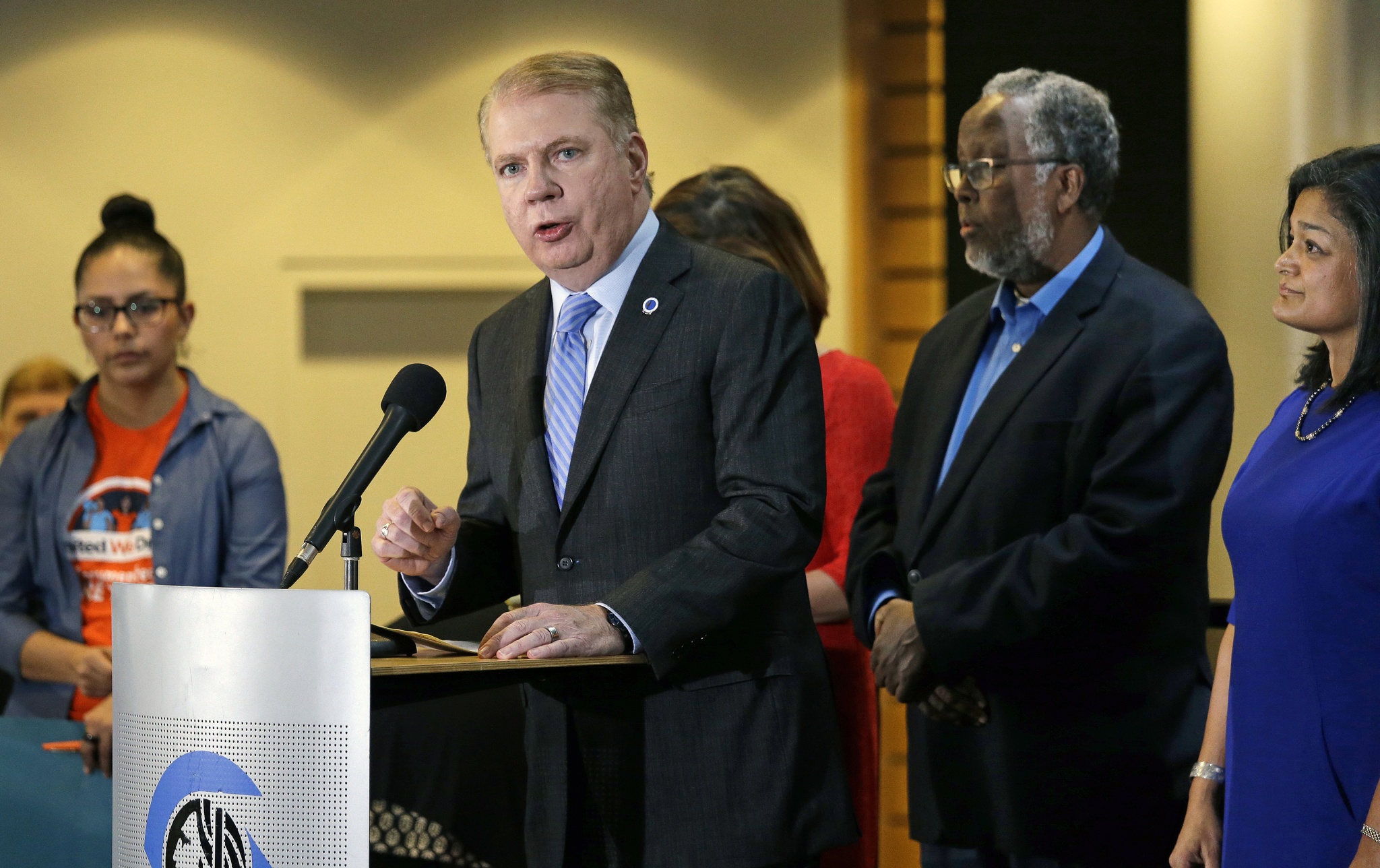By Gene Johnson
The Associated Press
SEATTLE — Politicians in New York, Seattle and other “sanctuary cities” that protect immigrants who are in the U.S. illegally declared Wednesday they won’t be intimidated by a move by President Donald Trump to cut off millions in federal funding to such communities.
Some cities and advocates vowed legal action, arguing that the threatened punishment would be unconstitutional.
“This city will not be bullied by this administration,” Seattle Mayor Ed Murray said, adding that he instructed city departments to rework their budgets to prepare for the possibility that federal dollars could be lost. “We believe we have the rule of law and the courts on our side.”
California Senate President Pro Tem Kevin de León, a Los Angeles Democrat, tweeted: “See you in court.”
While there is no formal definition of the term “sanctuary city,” it generally refers to jurisdictions that don’t cooperate with federal immigration officials.
In some cases, these cities tell police not to inquire about the immigration status of those they encounter, or they decline requests from immigration officials to keep defendants in custody while they await deportation.
Advocates say such policies protect people who may not have exhausted their rights to apply for U.S. residency. They also say that crime victims and witnesses are more likely to cooperate with police if they are not afraid of being deported.
“We’re not going to sacrifice any of our folks here in Providence,” said Jorge Elorza, the mayor of Providence, R.I. “My job is to represent every single resident in the city of Providence, and we will continue to do that.”
White House spokesman Sean Spicer said the Trump administration is going to “strip federal grant money from the sanctuary states and cities that harbor illegal immigrants.”
Trump signed an executive order that appeared more limited than that. It referred to withholding Justice Department and Homeland Security funds from only those jurisdictions that bar local officials from communicating with federal authorities about someone’s immigration status.
Peter L. Markowitz, a professor at Cardozo Law School in New York, said such an attempt to cut off funding would face strong legal challenges.
“The Constitution prohibits the president from defunding jurisdictions that won’t do his bidding,” Markowitz said. “There’s nothing in federal law that requires localities or states to participate in federal immigration enforcement. Second, the Constitution grants Congress — not the president — the power to determine how federal dollars are spent.”
In California, local law enforcement officials are barred from holding immigrants arrested on lesser crimes for deportation purposes. San Francisco has long been known as a haven for immigrants, and other cities have moved in that direction since Trump was elected.
Santa Ana, a city of 335,000 people in Orange County, passed a local ordinance earlier this month to bar the use of city resources for immigration enforcement. Nearly half the city’s residents are foreign-born.
__________
Associated Press writers Janie Har in San Francisco; Chris Grygiel in Seattle; Amy Taxin in Santa Ana, Calif.; Deepti Hajela in New York; and Matt O’Brien in Providence, R.I., contributed.

